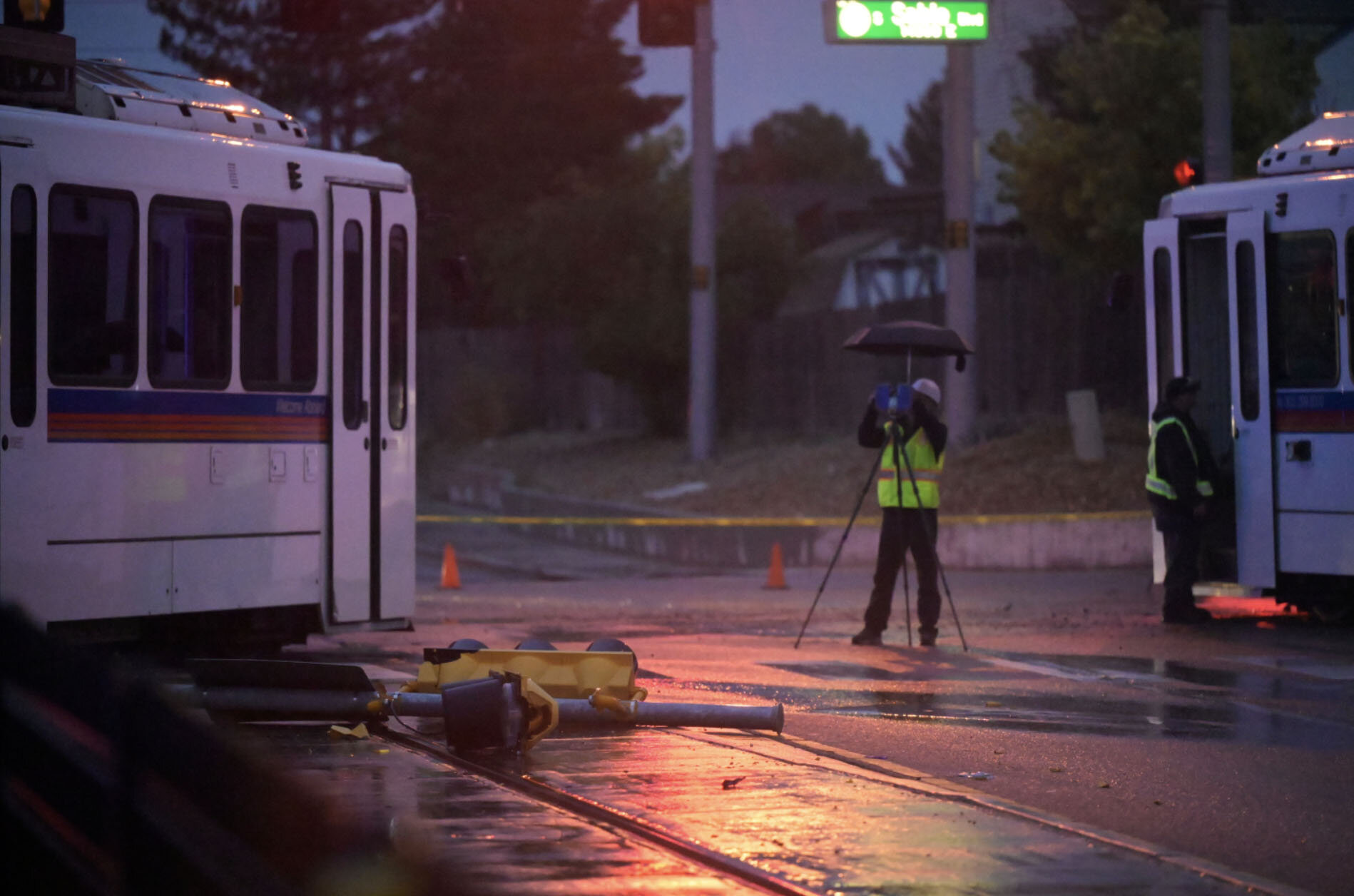The Regional Transportation District has filed a confidential investigation report on its September light-rail train derailment with state regulators and is now working on repairs to the damaged section of the R-Line, the agency said Monday.
RTD is sticking with its plan to restore service to a four-mile segment between the Florida and 13th Avenue stations sometime in December, though a news release says it might resume sooner. That will depend in part on discussions with Aurora city officials about the “train-traffic interface,” in which the R-Line turns 90 degrees, at street level, through the intersection of South Sable Boulevard and East Exposition Drive.
It’s unclear from the release what sorts of changes at the intersection might be considered. RTD spokeswoman Tina Jaquez declined to provide more information, saying details of those discussions are outlined in one of the confidential reports filed late Friday afternoon with the Colorado Public Utilities Commission. On Friday, crews removed a damaged support pole and adjusted the overhead electrified wire system that provides power to the trains, RTD said.
“RTD has been working as expeditiously as possible to restore full service to the impacted four-mile stretch of the R Line corridor,” said Debra Johnson, RTD’s general manager and CEO, in the release. “I appreciate our customers’ continued patience.”
A southbound train derailed Sept. 21, injuring three people, after a police camera captured it speeding into the sharp curve, which is rated for 10 mph. It was the second derailment at the same intersection, following a January 2019 incident in which speed was blamed. In the nearly seven weeks since the latest derailment, R-Line trains have run only north of 13th Avenue and south of Florida. Experts have told The Denver Post that the service outage has lasted much longer than is typical following such a crash.
On Oct. 30, RTD discontinued the bus shuttles connecting the Aurora Metro Center and Second & Abilene stations to the operating R-Line segments, leaving riders who need to travel through central Aurora to find other bus routes. The transit agency has not publicly released the results of its internal investigation. Aurora police are also investigating.
RTD’s new investigative report, along with its proposed corrective-action plan, won’t be available to the public until the Public Utilities Commission decides to remove their “highly confidential” designations. RTD on Monday denied The Post’s public-records request for the documents, citing state PUC rules that require them to be filed under seal initially.
RTD’s corrective-action plan after the 2019 derailment included an intention to explore the installation of an automated system that could override speeding trains. The agency commissioned an outside study of technology options, as ordered by the commission, but has not yet installed any upgrades, citing tight budgets.
The process of seeking injury compensation after a light rail accident begins when you reach out to us requesting our light rail accident injury in Denver Colorado. After the accident, tell us a little bit about yourself, your accident, and your medical conditions from the accident and we’ll direct you from there. We’ll schedule a time for you to speak with one of our light rail accident lawyers – free of charge. We can even travel to your home or visit you in the hospital if your injuries prevent you from making the trip to our office.

